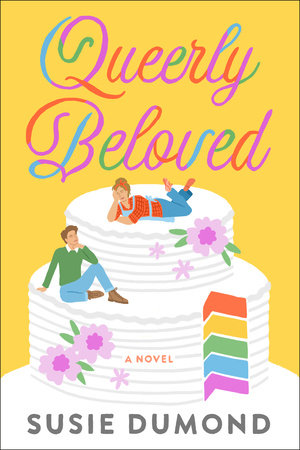Having some prior knowledge of the long, dark history of eugenics here in the United States, I wasn't totally shocked by the story being told in The Foundling. A topic like this, though, is never one you quite "get used to," and I must applaud Leary for deciding to bring these atrocities to a wider audience. This is a piece of America's past that often gets overlooked, and while this book takes place in 1927, the attitudes of the public towards those who are considered mentally disabled haven't changed as much we'd hope.
Our heroine is Mary Engle, a "half-orphan" who lived in an orphanage until she was twelve. You would think that her own disadvantaged past would perhaps make her more sympathetic to those who are from similarly unlucky circumstances, but it's just the opposite: she's ingrained with a sort of self-righteousness that will make you grit your teeth. I'm of two minds on Mary's character, and it's hard to decide what exactly to feel about her, and whether one opinion precludes the other. On the one hand, Mary is self-centered, naïve, intent on saving her own skin, and seems worryingly lacking in empathy; on the other hand, I think her opinions and thoughts are, sadly, realistic for a character in the 1920s. I hate to say this, considering the author notes that Mary and the entire story are based off her own grandmother and her experiences working at an institution similar to the Nettleton Village, but it's just downright hard to like Mary.
If she displayed character growth, well -- that'd be something entirely different. But throughout the story, she never quite grows up, in spite of her claims that she does. Her whole character revolves around her saying, "But what about me?" One of the side characters, a nurse called Bertie who quickly befriends Mary, is much more likable, relatable, and interesting. Although she displays similar prejudices, she's also openminded, and she's the one who really seems to care and fight for the girls from the very beginning. It's only around the 80-90% mark that Mary seems to show any development at all. This is my main issue with The Foundling. The story itself is fine, and the topic is both interesting and extremely disheartening, but Mary is simply not the kind of character you root for.
Moving onto the plotline, it's decently paced, and there are moments of real interest. Lillian, the girl who is falsely imprisoned (or is she?), is fascinating and lovable. At times, I felt the panic of the characters as they tried to make the right choices in harrowing situations. The descriptions of the women who are forced to live and work there are touching; I wish that we'd been given an insight into more of them. For example, there's a character called Elsie, a savant who plays the piano with astonishing beauty, who I would have loved to see even more of. I liked Leary's villain, Dr. Vogel. Like real-world "villains," she is complex, cultured on one hand, bigoted on the other; loving towards Mary, cruel towards those she thinks of as "lesser"; and in this case, Leary certainly succeeds in making a character who is both unlikable and interesting.
Most importantly, there's something missing from this tale that lends it a feeling of being half-told. It never seems to occur to Mary that even if these women and girls are, in fact, mentally disabled, they deserve love, care, and a world outside of the limited, frightening one they live in at Nettleton Village. I kept waiting for the other shoe to drop, for Mary's "aha!" moment of realizing that being mentally disabled does not make you "morally weak," "criminal," or deserving of being imprisoned from the moment you can bear children until the moment you no longer can, but it never comes. She has a few passages where she seems to be leading into this, but overall, the main focus of the story seems to be on the fact that Nettleton Village might be wrongfully imprisoning girls and women who are "of sound mind." That, certainly, is an issue in and of itself -- but what about those who are mentally disabled?
To conclude this already overly long review, I think there are some good, succinct points made here, but the overall story and characterization left me feeling disappointed. Those who are not aware of the history of eugenics in the United States will definitely find this a very valuable read, and I do recommend it if you are looking for more on the subject. However, it is slightly disjointed, and I just couldn't bring myself to be fully immersed when I had so many questions and doubts surrounding Mary's character, as well as the other issues I mentioned.
I hate to do this, but I must compare this to Take My Hand by Dolen Perkins-Valdez, which I reviewed here. This is another book about eugenics, forced sterilization, and reproductive violence (focused mostly on black women) that will open your mind, touch your soul, and has a main character who is struggling (and sometimes failing) to do the right thing. Unlike Mary, Civil, the heroine of Take My Hand, is someone also questioning the system and what she believes to be true, but she manages to be lovable, interesting, and a character that still sticks out in my mind.








